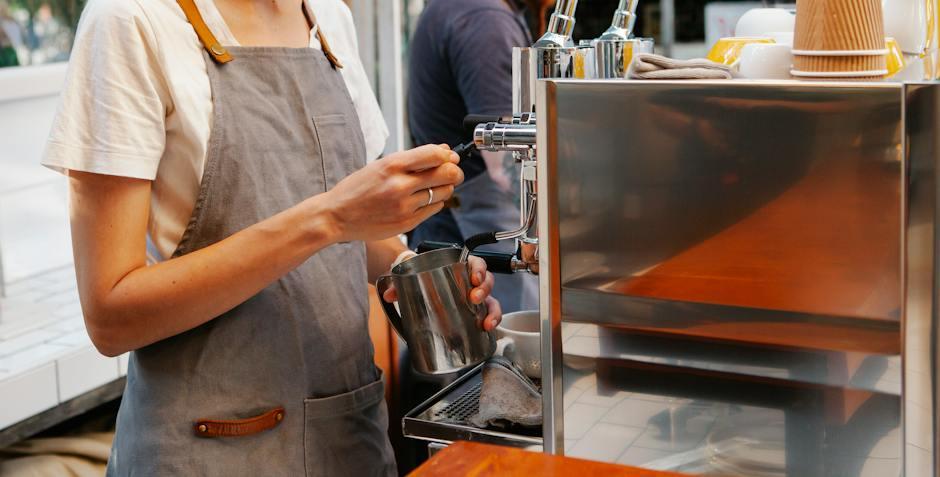Introduction to Liquor Liability Insurance for Hospitality Businesses
As a business owner in the hospitality industry, it is crucial to understand the significance of liquor liability insurance. This essential coverage is specifically designed to protect businesses that serve or sell alcoholic beverages. Let’s explore the importance of liquor liability insurance and gain insights into the laws and regulations governing this vital aspect of risk management.
Importance of Liquor Liability Insurance
Liquor liability insurance is a specialized form of coverage that provides financial protection for businesses in the hospitality industry. It is particularly critical for establishments such as bars, restaurants, and hotels that serve alcoholic beverages. This coverage extends beyond general liability insurance to specifically address the unique risks associated with alcohol service and consumption.
Businesses that overlook the importance of liquor liability insurance expose themselves to significant financial and legal risks. Without this coverage, they may be held liable for damages and injuries resulting from alcohol-related incidents, potentially leading to devastating financial consequences.
Brief Overview of Liquor Liability Laws and Regulations
Liquor liability laws and regulations have a direct impact on how hospitality businesses operate and manage their risks. These laws vary by jurisdiction but commonly impose legal responsibilities on businesses that serve alcohol. Understanding and complying with these regulations are critical for ensuring legal protection and minimizing potential liabilities.
Failure to carry liquor liability insurance can result in severe penalties and legal repercussions for businesses operating in the hospitality industry. The absence of this coverage not only jeopardizes the financial stability of the business but also creates a vulnerability to legal challenges in the event of alcohol-related incidents.
By comprehensively delving into the importance and legal framework surrounding liquor liability insurance, businesses can proactively safeguard their operations and demonstrate a commitment to responsible alcohol service.
Moving forward, we will delve into Section 2, where we will explore the intricate details of liquor liability insurance coverage and how it can mitigate risks for hospitality businesses.
Stay tuned to gain a deeper understanding of the coverage options and the role of liquor liability insurance in providing financial protection for businesses in the hospitality industry.
Understanding Liquor Liability Insurance Coverage
When it comes to protecting your business in the hospitality industry, understanding the nuances of liquor liability insurance coverage is crucial. This section will delve into the various types of coverage offered, the claims covered, and how liquor liability insurance can provide much-needed financial protection.
Types of Coverage Offered
General Liability Coverage
General liability insurance provides broad protection for businesses, including coverage for bodily injury, property damage, and personal and advertising injury. While it offers essential protection, it may not fully address the unique risks associated with the sale and service of alcohol.
Liquor Liability Coverage
Liquor liability coverage specifically addresses the risks related to serving and selling alcohol. It is designed to protect businesses from liabilities arising from alcohol-related incidents, such as injuries or property damage caused by an intoxicated patron.
Common Claims Covered by Liquor Liability Insurance
Alcohol-related incidents can lead to a range of claims against hospitality businesses. Understanding the types of incidents that are covered under liquor liability insurance is essential. Common claims may include:
- Injuries Caused by Intoxicated Patrons: Coverage for injuries sustained by individuals due to the actions of patrons who were served alcohol at the business.
- Property Damage: Protection against damages caused by intoxicated individuals within the business premises.
- Legal Defense Costs: Reimbursement for legal expenses incurred in defending against alcohol-related liability claims.
How Liquor Liability Insurance Provides Financial Protection
In the aftermath of alcohol-related incidents, the financial repercussions can be significant. Liquor liability insurance offers a crucial safety net by providing coverage for legal defense costs, settlements, and judgments, helping to shield businesses from potentially devastating financial losses.
As we continue to explore the intricate aspects of liquor liability insurance, the next section will shed light on the factors that can influence insurance premiums in this specialized coverage area.
Factors Affecting Liquor Liability Insurance Premiums
Understanding the factors that influence liquor liability insurance premiums is essential for hospitality businesses seeking to manage their insurance costs effectively. This section will explore the various elements that can impact premium rates, including business location, operations, risk management practices, and claims history.
Business Location and Clientele Demographics
The geographical location of a hospitality business and the demographics of its clientele significantly impact the risk assessment conducted by insurance providers. Factors such as the prevalence of alcohol-related incidents in the area and the socioeconomic characteristics of patrons can influence the perceived risk, thereby affecting insurance premiums.
Operations and Risk Management Practices
Adopting robust risk management practices, including responsible alcohol service training for staff, can positively impact insurance premiums. Insurers may view businesses that prioritize responsible alcohol service as lower risk and may offer more competitive premium rates as a result.
Claims History and Loss Experience
A business’s claims history and loss experience play a pivotal role in determining liquor liability insurance premiums. Previous incidents involving alcohol-related liabilities can lead to increased premiums. However, implementing effective risk mitigation strategies and demonstrating a commitment to responsible alcohol service can help mitigate potential premium hikes.
Strategies to Mitigate Claims and Reduce Premiums
- Implementing comprehensive staff training programs focused on responsible alcohol service.
- Maintaining detailed records of incidents and implementing corrective measures to prevent recurrences.
- Engaging in proactive risk assessments to identify potential vulnerabilities and address them proactively.
As we delve into this crucial aspect of liquor liability insurance, the next section will provide valuable insights into the process of comparing different liquor liability insurance policies, assisting businesses in making informed decisions to protect their operations effectively.
Comparing Liquor Liability Insurance Policies
When it comes to securing liquor liability insurance for your hospitality business, a thorough understanding of the coverage options available is paramount. This section will delve into the critical aspects of comparing liquor liability insurance policies, including coverage limits, exclusions, additional coverages, and endorsements.
Coverage Limits and Exclusions
It’s crucial to understand the policy limits of liquor liability insurance. This includes examining the maximum coverage amount provided for different types of claims, such as bodily injury and property damage. Additionally, being aware of common exclusions in liquor liability policies is essential. Common exclusions may encompass intentional acts, assault and battery, and employee-related incidents.
Additional Coverages and Endorsements
Umbrella Coverage Options
Businesses may consider obtaining umbrella coverage to supplement their primary liquor liability insurance. Umbrella policies offer additional protection by extending the coverage limits of the underlying policies, including liquor liability insurance.
Specialized Endorsements for Specific Risks
Certain businesses in the hospitality industry may require specialized endorsements tailored to their unique risks. These endorsements could address specific scenarios not covered by standard liquor liability policies, providing a more comprehensive level of protection.
As we explore the intricacies of comparing liquor liability insurance policies, the upcoming section will provide valuable insights into essential tips for selecting the right liquor liability insurance policy, empowering businesses to make informed decisions to safeguard their operations effectively.
Tips for Selecting the Right Liquor Liability Insurance Policy
Selecting the most suitable liquor liability insurance policy for your hospitality business requires careful consideration and a proactive approach. This section will provide essential tips to guide businesses through the process of evaluating, comparing, and ultimately choosing the right liquor liability insurance policy to protect their operations effectively.
Conducting a Comprehensive Risk Assessment
Businesses should conduct a thorough risk assessment to identify potential alcohol-related risks that are unique to their specific operations. Understanding these risks enables businesses to align their insurance coverage with their distinct needs and vulnerabilities.
Obtaining Multiple Quotes from Different Insurers
It’s crucial to obtain and compare multiple quotes from different insurers to gain a comprehensive understanding of the coverage options and premium rates available. By considering quotes from various insurers, businesses can make informed decisions about the most competitive and beneficial liquor liability insurance policy for their needs.
Working with an Experienced Insurance Agent or Broker
Collaborating with an experienced insurance agent or broker who possesses expertise in the hospitality industry can be immensely valuable. These professionals can navigate the complexities of liquor liability insurance, provide tailored advice, and assist businesses in securing optimal coverage at competitive rates.
Reviewing and Understanding the Policy Terms and Conditions
When evaluating liquor liability insurance policies, it’s essential to carefully review the policy wording and provisions. Paying close attention to the terms and conditions ensures that businesses fully comprehend the extent of their coverage and any limitations or exclusions that may apply.
As businesses navigate the process of selecting the right liquor liability insurance policy, it’s essential to keep these tips in mind to make informed decisions that protect their operations and assets effectively.
In conclusion, liquor liability insurance is a critical component of risk management for businesses in the hospitality industry. By understanding the coverage options, premium factors, and essential considerations for policy selection, businesses can proactively mitigate the financial and legal risks associated with alcohol service. As the regulatory landscape and industry dynamics evolve, staying informed and proactive about liquor liability insurance is paramount for safeguarding business continuity and resilience.







